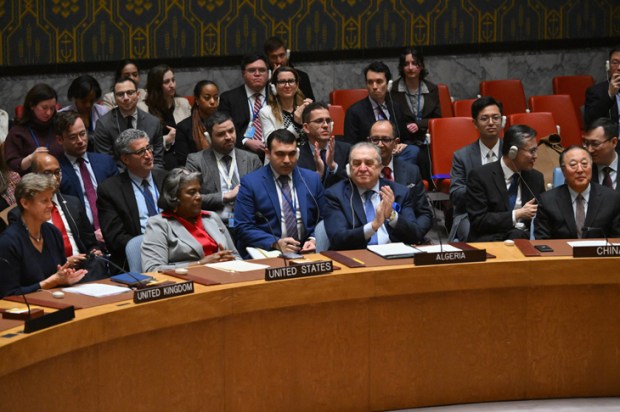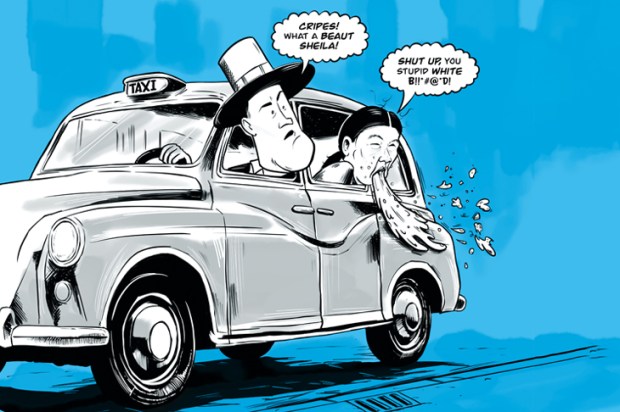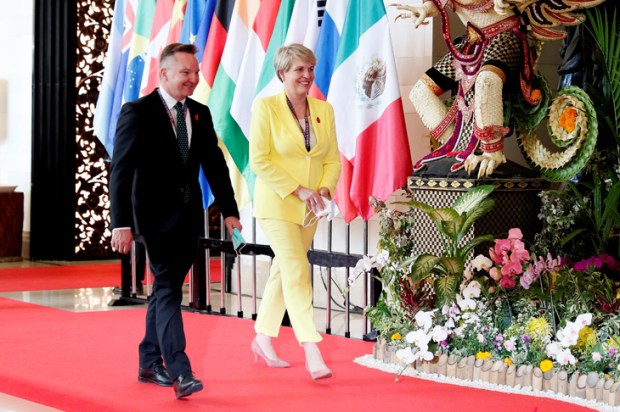Left-wing dogma is destroying the literary skills of an entire generation. Such is the depressing conclusion of a recent report into ‘teaching reading’ by the Centre for Independent Studies in its in-house magazine Policy, which spells out how our children are being badly let down by unions and bureaucrats.
We learn that the ‘English Teachers Association of NSW advises that when children come across an unknown word, they should be encouraged to “predict” or guess it, even though it has long been known that predicting words… has a low probability of accuracy.’
That’s one of the scarier paragraphs. There are plenty more in ‘Why Jaydon Can’t Read,’ the report by research fellow Jennifer Buckingham and her colleagues about how ideology has triumphed over evidence-based learning in teaching reading in our schools.
Choosing the trendy, faddish name ‘Jaydon’, as opposed to George, Arthur or Susan, was presumably the authors’ cute way of highlighting the fact that, as much as anything, the abandoning of traditional approaches to teaching reading is at the heart of the problem. Alas, teacher unions and the like prefer to adopt politically correct, leftist, anti-scientific approaches rather than draw on the wealth of evidence-based research that exists on how best to improve literacy.
Typically, our ‘education Prime Minister’ Julia Gillard felt that the solution was to throw huge dollars at the problem in a manner eerily reminiscent of pink batts and the NBN; embarking on a $1.1 billion ‘Reading Blitz’, splurging the equivalent of $8,000 on each primary school teacher. Can it work? Unlikely. As the report points out: ‘There was no requirement for this “blitz” to include evidence-based approaches to teaching reading.’
Many culprits populate the report, including those teachers who cannot teach reading effectively because they themselves lack the skills: ‘In the context of education, one cannot teach what one does not know. Low entrance requirements have resulted in pre-service teachers whose personal literacy skills may be inadequate to teach reading.’ Or how about this: ‘There appears to be an ideological hegemony among university faculties and state education departments that actively or passively works against implementing effective evidence-based reading instruction. University of Wollongong Professor Brian Cambourne denies the superiority of the scientific method… He suggested the inquiry should have included qualitative questions like, ‘What’s happening and what do these happenings mean?’ and ‘How does Mrs Smith set up her kindergarten classroom so that children learn to listen closely to what each other says?’ Scary stuff. Those students who are barely literate deserve much better.
Fortunately, the authors conclude with a raft of positive suggestions: ‘Every teacher education course should have, at minimum, a one-semester subject on the five “big ideas” of effective reading instruction. Research funding bodies must be more discerning about the research they support. Schools must be less willing to accept as inevitable the large numbers of students who do not learn to read. Where schools have taken this responsibility seriously, and taken all possible steps to achieve their goal, success has followed.’
Perhaps there could be a happy ending after all.
Putting out fires
It’s like chalk and cheese. In January 2011, one prime minister wandered aimlessly around the Queensland floods carrying a suitcase on his head with a camera crew in tow. In the past week, a different prime minister dedicated his efforts in disaster-relief to doing what he has always done: being a volunteer fire fighter with his local brigade.
Kevin Rudd’s valiant efforts also included him — as was his wont — lecturing the aggrieved locals about the perilous nature of the murky swollen waters swirling around their ankles. Fortunately, Tony Abbott decided to eschew both the lectures and the cameras, although a shot did pop up on Twitter. As part of his low-profile media strategy, it was praiseworthy to see the Prime Minister avoiding the temptation to grandstand on the nightly news during a moment of national disaster.
Let’s hope that once the fires have subsided, Mr Abbott is prepared to don the political garb of fire prevention and grab the policy hose of bush management with equal zeal. A good start is to scrap the red and green tape, with which successive Greens/Labor-dominated state governments and local councils have prevented home-owners and others from undertaking appropriate hazard reduction measures. It’s merely endangered the lives and livelihoods of so many Australians.
There could be no better placed person than a volunteer ‘firey’ to understand the perils of allowing the build-up of fuel loads and neglecting other preventive strategies. A new, national approach is required.
Got something to add? Join the discussion and comment below.
Get 10 issues for just $10
Subscribe to The Spectator Australia today for the next 10 magazine issues, plus full online access, for just $10.
You might disagree with half of it, but you’ll enjoy reading all of it. Try your first month for free, then just $2 a week for the remainder of your first year.














Comments
Don't miss out
Join the conversation with other Spectator Australia readers. Subscribe to leave a comment.
SUBSCRIBEAlready a subscriber? Log in